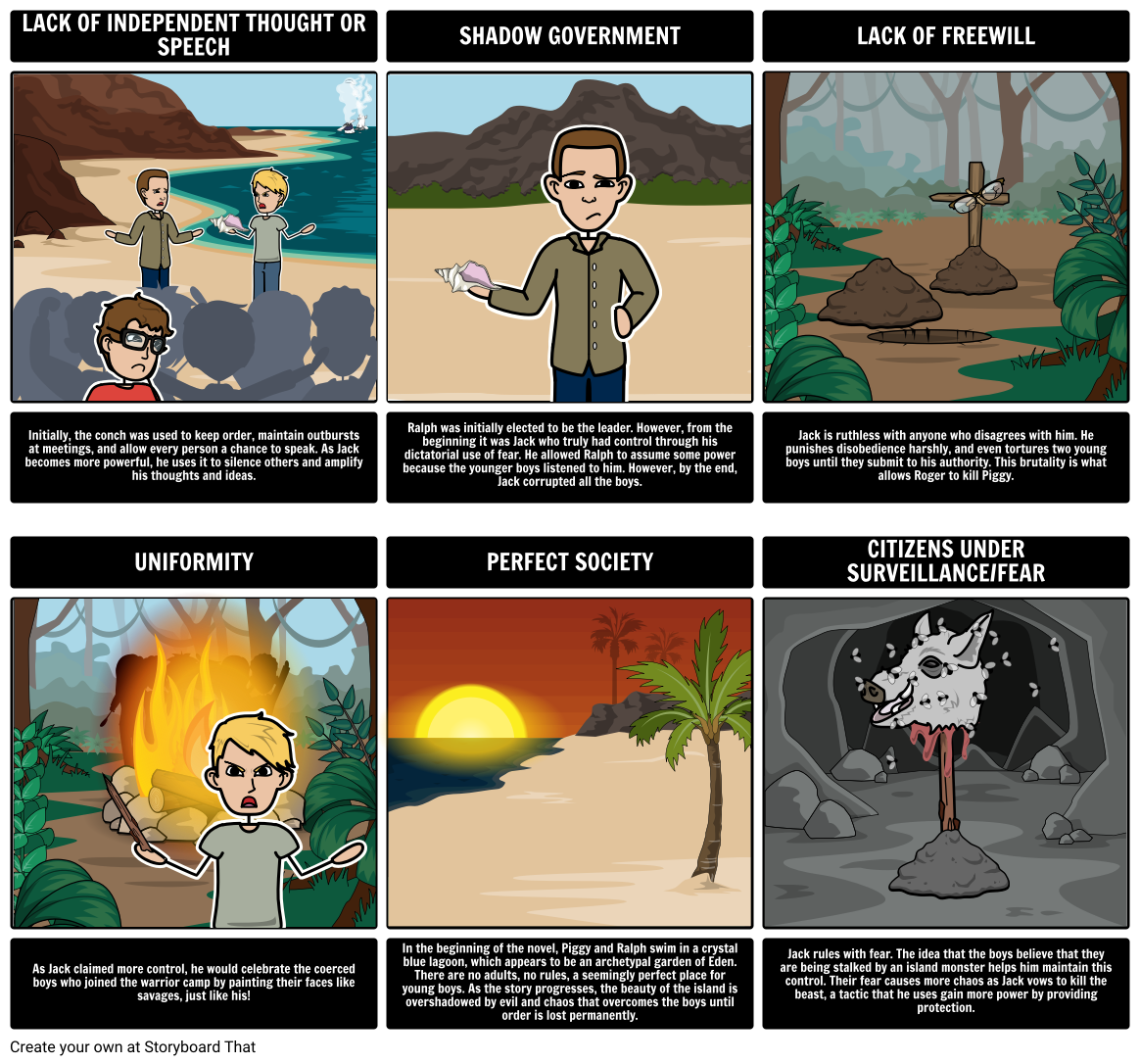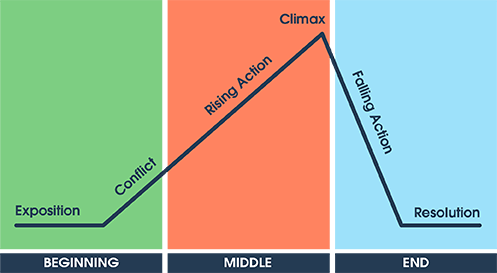Lord of the Flies Dystopia

Löydät kuvakäsikirjoituksen seuraavissa artikkeleissa ja resurssit:

Dystopia Määritelmä ja Ominaisuudet
Oppituntisuunnitelmat Rebecca Ray
Täydellisyys maksaa, ja pysyy ikuisesti ulottumattomissa. Tämä ristiriita on vain yksi syy, miksi dystopiat ovat kiehtoneet kaikenikäisiä lukijoita. Ajatus utopiasta rinnakkain sen karun todellisuuden kanssa, ettei sitä voi koskaan olla olemassa, muodostaa pakottavan puitteen yhteiskunnalliselle kommentille ja kritiikille.
'
Katso joitain muita opetusartikkeleitamme!
Kuvakäsikirjoitus Kuvaus
Lord of the Flies Dystopia | Lord of the Flies by William Golding
Kuvakäsikirjoitus Teksti
- Liuku: 1
- LACK OF INDEPENDENT THOUGHT OR SPEECH
- Initially, the conch was used to keep order, maintain outbursts at meetings, and allow every person a chance to speak. As Jack becomes more powerful, he uses it to silence others and amplify his thoughts and ideas.
- Liuku: 2
- SHADOW GOVERNMENT
- Ralph was initially elected to be the leader. However, from the beginning it was Jack who truly had control through his dictatorial use of fear. He allowed Ralph to assume some power because the younger boys listened to him. However, by the end, Jack corrupted all the boys.
- Liuku: 3
- LACK OF FREEWILL
- Jack is ruthless with anyone who disagrees with him. He punishes disobedience harshly, and even tortures two young boys until they submit to his authority. This brutality is what allows Roger to kill Piggy.
- Liuku: 4
- UNIFORMITY
- As Jack claimed more control, he would celebrate the coerced boys who joined the warrior camp by painting their faces like savages, just like his!
- Liuku: 5
- PERFECT SOCIETY
- In the beginning of the novel, Piggy and Ralph swim in a crystal blue lagoon, which appears to be an archetypal garden of Eden. There are no adults, no rules, a seemingly perfect place for young boys. As the story progresses, the beauty of the island is overshadowed by evil and chaos that overcomes the boys until order is lost permanently.
- Liuku: 6
- CITIZENS UNDER SURVEILLANCE/FEAR
- Jack rules with fear. The idea that the boys believe that they are being stalked by an island monster helps him maintain this control. Their fear causes more chaos as Jack vows to kill the beast, a tactic that he uses gain more power by providing protection.
Yli 30 miljoonaa kuvakäsikirjoitusta luotu
Ei Latauksia, ei Luottokorttia ja ei Vaadi Kirjautumista Kokeilemiseen!




